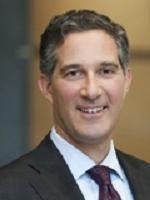Recently, in United States v. Borrasi,[1] the Seventh Circuit aligned with the Third, Fifth, Ninth, and Tenth Circuits in determining that the Anti-Kickback Statute (AKS)[2] is violated where at least a portion of a payment made to a physician was intended to induce that physician to refer patients to the paying entity. In so doing, the court affirmed the so-called "one purpose" standard that holds that a payment is illegal under the AKS where one purpose of the payment is to induce referrals. The court also rejected the appellant's request to adopt a "primary motivation" standard under which the trier of fact would be required to determine the defendant's intent and find the defendant not guilty if the primary motivation behind the remuneration was to compensate a physician for bona fide services provided.
The decision represents an important confirmation of the decades-old "one purpose" standard and reiterates the need for vigilance when drafting agreements with healthcare professionals. When coupled with the provisions of Section 6402(f) of the Patient Protection and Affordable Care Act of 2010, which eliminates the requirement to demonstrate specific intent to violate the AKS, proactive analysis as to AKS compliance becomes even more important.
Background
Appellant Ronald Borrasi, a medical doctor, owned a group of healthcare providers in Illinois called Integrated Health Centers (Integrated) and had affiliations with various nursing homes. As the owner of Integrated, Borrasi became acquainted with several officers and directors of the Rock Creek Center (Rock Creek), a licensed inpatient psychiatric hospital also in Illinois. In Borrasi, the government alleged that Borrasi conspired with the Rock Creek executives to pay bribes to Borrasi and other clinicians at Integrated in exchange for increased Medicare beneficiary referrals to Rock Creek.
According to the prosecution's theory, in order to effectuate and conceal the bribes, Rock Creek put Borrasi and others on its payroll as part-time employees (for example, Borrasi was named "Service Medical Director") for jobs they, in fact, did not perform. Borrasi would submit false time sheets in an effort to hide the scheme. By the court's account, Borrasi did perform minimal work for Rock Creek, such as sporadically attending meetings and submitting reports of his work. Nonetheless, a director for Rock Creek testified at trial that neither Borrasi nor Rock Creek executives expected anyone from Integrated to actually perform the administrative duties for Rock Creek for which they were receiving payment.
Borrasi and several Rock Creek executives were indicted in December 2006 on conspiracy charges, as well as six counts each of violating the AKS. Borrasi took the case before a jury and was found guilty on all counts after a three-week trial. The district court sentenced Borrasi to 72 months' imprisonment and two years' supervised release. Borrasi appealed, offering two arguments in his defense: (1) the court erred in a particular evidentiary ruling, and (2) the government's statement to the jury regarding the scope of the AKS was erroneous and not corrected by the court by striking the argument or providing the jury with a curative instruction.
The Seventh Circuit's Decision
On appeal, Borrasi argued that the payments he received from Rock Creek were not illegal under the AKS because they fell under the employment safe harbor of the AKS, which exempts from liability "any amount paid by an employer to an employee (who has a bona fide employment relationship with such employer) for employment in the provision of covered items or services."[3] Borrasi also argued that the government misstated the law to the jury by suggesting that "it did not matter if any portion of Rock Creek's payments to him or other Integrated physicians was pursuant to legitimate employment relationships because the statute was violated if any portion of the payments was for patient referrals."[4] Borrasi urged the court to adopt a "primary motivation" test whereby he could not be found guilty if the primary motivation behind the payments was to compensate an employee for bona fide services.
The court declined to adopt the "primary motivation" test, finding that nothing in the AKS "implies that only the primary motivation of remuneration is to be considered in assessing Borrasi's conduct."[5] To the contrary, the court "joined [its] sister circuits in holding that if part of the payment compensated past referrals or induced future referrals, that portion of the payment violates 42 U.S.C. § 1320a-7b(b)(1)."[6] The court concluded that "[b]ecause at least part of the payments to Borrasi was 'intended to induce' him to refer patients to Rock Creek, 'the statute was violated, even if the payments were also intended to compensate for professional services.'"[7] While rejecting the "primary motivation" test, the court appeared to embrace the "one purpose" standard adopted by other circuits, although expressed in the form of whether one part of the payment was to induce referrals.
Implications
In reaching its decision, the Seventh Circuit relied on reasoning outlined by the Third, Fifth, Ninth, and Tenth Circuits, noting that "[e]ach circuit to actually reach the issue has rejected the primary-motivation theory Borrasi advocates."[8] By declining to create a split among the circuits, the Seventh Circuit has further solidified the "one purpose" standard in AKS prosecutions.
The court did not specifically address Borrasi's argument that the payments from Rock Creek were protected by the employment safe harbor to the AKS, perhaps because the court viewed Borrasi's "employment" relationship with Rock Creek as a sham; therefore, it did not acknowledge that the two parties had a bona fide employment relationship. According to the court, the district court's instruction "tracked the language of § 1320a-7b(b)(1), combining it with the definition of remuneration. To convict Borrasi, the instruction required the jury to find-beyond a reasonable doubt-that some amount was paid not pursuant to a bona fide employment relationship."[9]
The court's decision in Borrasi reiterates what providers should already know-attempting to disguise payments that are intended to induce or reward patient referrals as compensation for bona fide employment or other services will create substantial personal and organizational risk. While the court did not directly address in its decision the scope of the employment safe harbor and the protection afforded to payments to bona fide employees when a portion of their salary or bonus is tied to patient referrals, we do not believe the court's decision is at odds with the long-held view that payments to employed marketing and sales staff, as well as other bona fide employees, to arrange for referrals is acceptable under the AKS employment safe harbor.
[1]. No. 09-4088 (7th Cir., May 4, 2011).
[2]. 42 U.S.C. § 1320a-7b.
[3]. 42 U.S.C. § 1320a-7b(b)(3).
[4]. Op. at 12.
[5]. Op. at 15.
[6]. Id.
[7]. Id. (quoting United States v. Greber, 760 F.2d 68, 72 (3d Cir. 1985)).
[8]. Id. at 14 (citing Greber, 760 F.2d at 71; United States v. Davis, 132 F.3d 1092, 1094 (5th Cir. 1998); United States v. Kats, 871 F.2d 105, 108 (9th Cir. 1989); and United States v. McClatchey, 217 F.3d 823, 835 (10th Cir. 2000)).
[9]. Op. at 15 (emphasis added).



 />i
/>i

